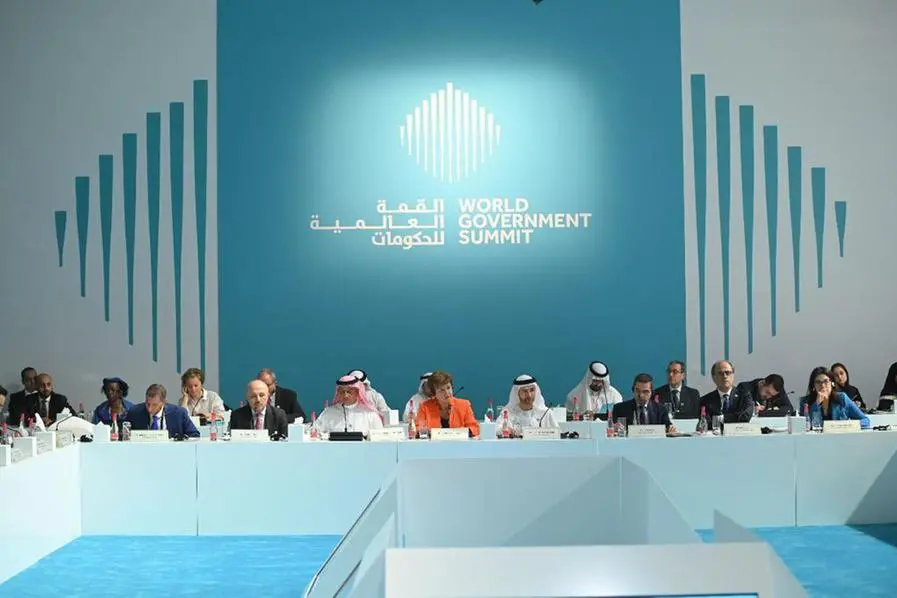PHOTO
As the global growth outlook remains weak in 2023 and tackling inflation is still as a top priority for many economies, Kristalina Georgieva, the Managing Director of the International Monetary Fund, has called for countries to use fiscal policies effectively to build resilience.
The IMF chief was a keynote speaker at the seventh annual Arab Fiscal Forum, which took place at the World Government Summit (WGS) in Dubai. The international summit will be held from 13th to 15th February, under the slogan “Shaping Future Governments”.
“2023 remains a difficult year, but it may be also a turning point. We may see growth finally going up and inflation going down, after appearing when it was the exact opposite—growth went down and inflation went up. After expanding by 3.4% last year, we see global growth slowing to 2.9% in 2023 and rebounding slightly to 3.1% in 2024,” she said.
According the IMF outlook, growth is expected to drop in the MENA economies from 5.4% in 2022 to 3.2% this year before ticking up to 3.5% in 2024.
Georgieva highlighted three principles for countries using fiscal policies to build resilience, of which creating a robust framework to conduct fiscal policy and manage fiscal risks was the first.
“Many governments have stepped in to help the vulnerable in the face of increasing energy and food prices in the region while still maintaining development plans and investment, and this is an act that requires resources and careful planning,” she noted.
The IMF chief cited examples such as Morocco ramping up social support by phasing out expensive, untargeted subsidies in favor of targeted social support. Mauritania has instituted a fiscal anchor to cope with volatile mineral export revenues. "And some energy exporters are building buffers when prices are high to prepare for oil price volatility," Georgieva said.
In order to prioritise essential spending, stabilise debt and building investor trust, many Arab countries are adopting credible medium-term fiscal frameworks, which are key to mitigating risks when they materialise, the IMF chief noted.
The second principle, Georgieva said, is long-term planning and investment to address climate challenges.
Investment in climate-resilient infrastructure and early warning systems is critical for increasing regional resilience, Georgieva said, highlighting the need for investing in renewable energy and making regional economies less carbon-intensive.
"Governments in the region have identified multi-year financing needs of over $750bln for these actions. Enabling the environment for private climate finance through the right policies and financial solutions is key to meeting these needs.
The third principle to effectively build resilience, according to Georgieva, is to boost tax revenues and modernise tax administration.
"If we are to invest in a more resilient future, we will need to further strengthen tax policy and administration. Many countries in the region have made good progress in expanding their tax capacity. And yet, the average tax-to-GDP ratio, excluding hydrocarbon-related revenue, remains at about 11 percent— less than half of what could potentially be collected," she said.
"This can be increased by improving tax policy design and phasing out inefficient tax exemptions," she added.
The IMF chief cited examples such as the UAE’s plans to introduce corporate income tax, the substantial revenue raised by Bahrain and Saudi Arabia through value-added taxes, Algeria’s expansion of its tax base.
(Writing by Seban Scaira seban.scaria@lseg.com; editing by Daniel Luiz)





















